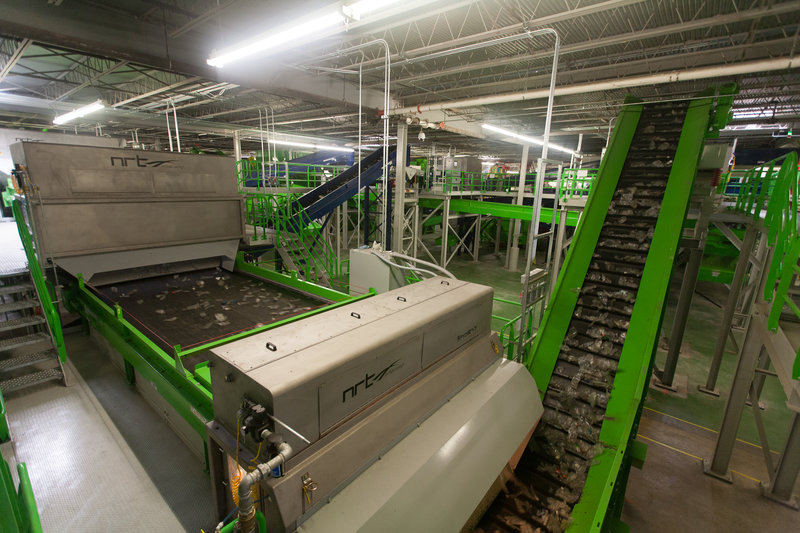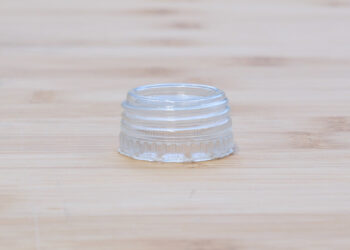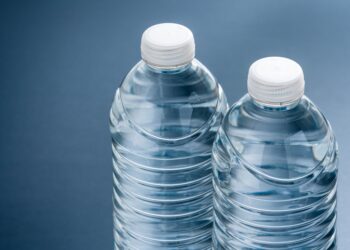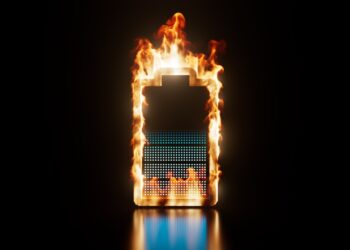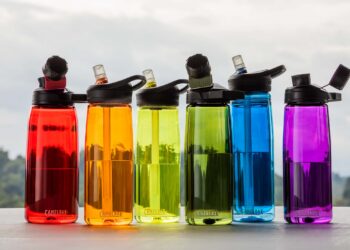Unifi’s new PET recycling plant uses advanced dry de-labeling equipment and a host of optical sorters to generate a clean feedstock for fiber manufacturing.
The Reidsville, N.C. facility relies on sortation and washing equipment from two major recycling equipment companies, Bulk Handling Systems and Amut. The $28 million investment helps synthetic yarn manufacturer Unifi move further upstream to control feedstock for its Repreve recycled-content polyester business.
The move also gives the company greater flexibility and allows it to boost recycled PET volumes.
“The state-of-the-art recycling center is one of the most advanced in the United States, with the capacity to produce annually 75 million pounds of the highest quality, consistent, clean bottle flake,” according to Unifi press release.
Incoming materials are purchased from materials recovery facilities (MRFs) around the eastern U.S. Outgoing flakes will be sent to a Repreve manufacturing operation or sold to other converters for use as food packaging or other non-food applications, including strapping and film.
Local newspaper Rockingham Update recorded video of the grand opening ceremony, held on Sept. 7. See the bottom of this article for a photo slideshow of the opening event and facility equipment.
De-labeling equipment
Italian plastics processing equipment manufacturer Amut designed, built and assembled dry de-labeling and washing lines for the facility.
The patented dry de-labelling system is aimed at removing full-body shrink sleeve labels, which are growing in popularity among beverage brands.
Full-body shrink sleeve labels, specifically those made of PVC and PETG, present problems for float-sink tanks because the labels follow the PET stream to the bottom of the tank. PETG in particular will degrade the quality of recycled PET if too much of it enters the stream. Plastics Recycling Update magazine wrote about the issues presented by shrink sleeve labels – and innovations aimed at solving those issues – in its August edition.
Amut says its de-labeling technology removes the labels without destroying the bottle necks. Keeping the necks intact prevents the loss of usable plastic and aids in downstream sortation.
If all bottles entering the system contain full body shrink sleeve labels, Amut’s equipment can remove labels from more than 80 percent of them, according to the company.
The company makes systems capable of handling more than 13,000 pounds per hour.
Sortation approaches
After bales arrive at the facility, equipment from Bulk Handling Systems (BHS), National Recovery Technology (NRT) and Nihot are used to sort bottles. NRT and Nihot are BHS-owned companies.
Nine NRT sorters are key to targeting clear PET for later processing. They include the company’s in-flight sorting technology, which scans and ejects bottles after they have left the end of the belt.
A BHS video provides a clear look at the large scale of the PET recycling operation, as well as optical sorters:
The front-end system is capable of sorting more than 22,000 pounds per hour, according to a BHS press release.













